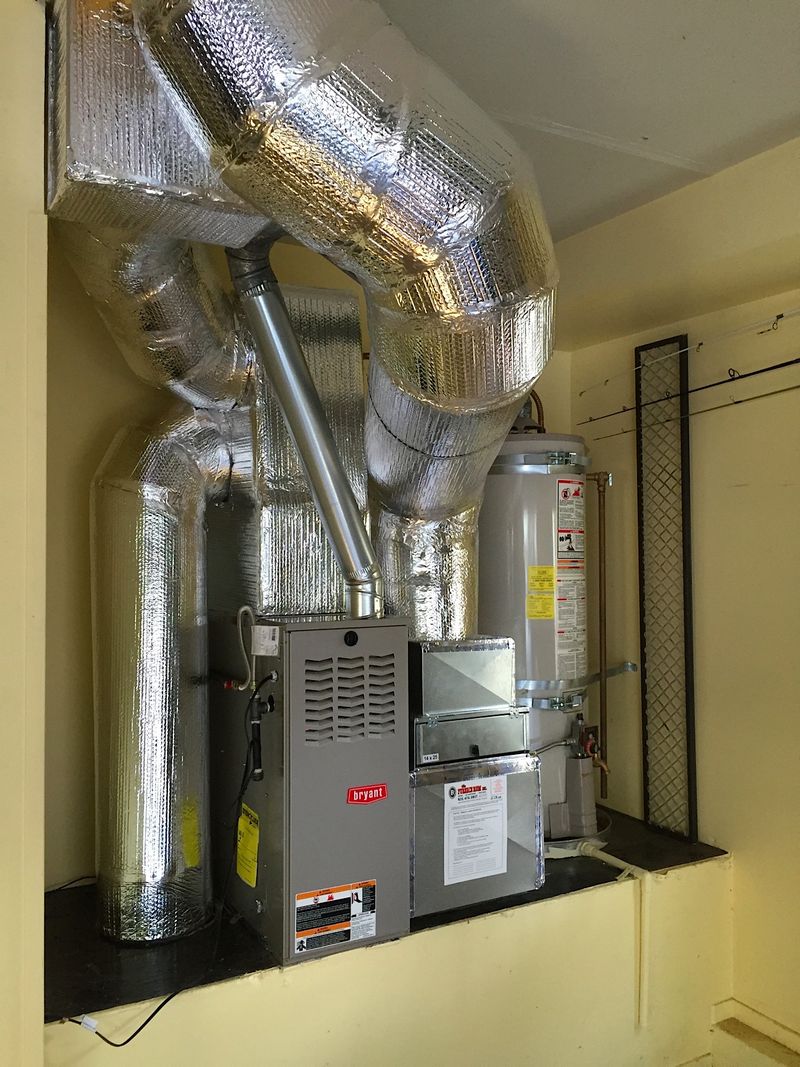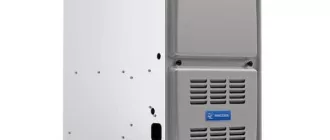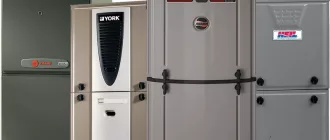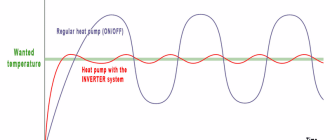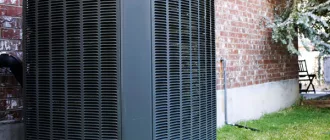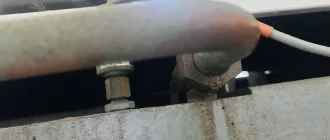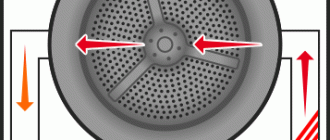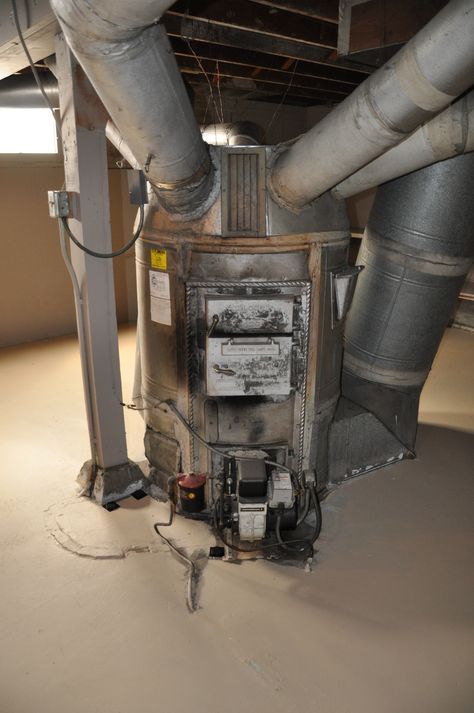
Home Heating Tips to Maximize the Life of Your Furnace
Keeping your home warm and cozy is essential for a comfortable life, especially during the cold winter months. A well-maintained heating system not only provides warmth but also helps maximize energy efficiency and save money on utility bills. The furnace is the heart of any home heating system, and taking proper care of it is essential to ensure its longevity.
Regular maintenance is key to keeping your furnace in good working condition. Cleaning or replacing the air filters regularly can help improve the airflow, increase efficiency, and prevent the buildup of dirt and dust that can damage the system. Additionally, scheduling an annual professional inspection and tune-up can detect any potential issues and ensure the furnace is running at its optimal performance.
Another effective tip to prolong the lifespan of your furnace is to seal any air leaks in your home. Leaky windows and doors can allow cold air to seep in and warm air to escape, placing additional strain on the heating system. By sealing these leaks, you can improve the efficiency of your heating system and reduce the workload on the furnace, ultimately extending its lifespan.
Lastly, proper thermostat management is essential to maximize the efficiency and lifespan of your furnace. Setting the temperature to a comfortable level when you’re at home and lowering it when you’re away or sleeping can help reduce unnecessary strain on the furnace and save energy. Additionally, using a programmable thermostat can help automate temperature adjustments and ensure optimal energy usage throughout the day.
To ensure the longevity of your home heating system, it’s crucial to take proactive steps to maintain and maximize the efficiency of your furnace. By following these effective home heating tips, you can extend the lifespan of your furnace, save money on utility bills, and enjoy warm and cozy winters for years to come.
Importance of Proper Home Heating
Proper home heating is essential for maintaining a comfortable and healthy living environment. It not only keeps you warm during the cold months but also helps in maximizing the lifespan of your furnace. Here are a few tips to help you achieve efficient home heating:
1. Regular Maintenance: It is crucial to schedule regular maintenance for your furnace to ensure it is running efficiently. This includes cleaning or replacing filters, checking for any leaks or malfunctions, and lubricating moving parts. Regular maintenance will not only increase the efficiency of your furnace but also prevent any potential breakdowns.
2. Programmable Thermostat: Using a programmable thermostat allows you to control the temperature settings in your home even when you are away. By setting lower temperatures when you are not at home or during the night, you can save energy and reduce strain on your furnace. This helps in prolonging its lifespan.
3. Proper Insulation: Insulating your home effectively is another way to maximize your home heating. Insulation prevents heat loss, keeping your home warm and reducing the workload on your furnace. Make sure to insulate your walls, attic, and windows properly to maintain a consistent temperature inside your home.
4. Sealing Air Leaks: Air leaks can significantly reduce the efficiency of your heating system. Check for any gaps or cracks around windows, doors, or vents and seal them with weatherstripping or caulking. This will prevent cold air from entering your home and warm air from escaping, allowing your furnace to work less and last longer.
5. Zoning System: A zoning system allows you to control the temperature in different areas or zones of your home independently. This can be especially beneficial if you have large or multi-story homes. By heating only the areas that are being used, you can save energy and prolong the lifespan of your furnace.
By following these tips and taking proper care of your furnace, you can ensure maximum efficiency and prolong its lifespan. Remember to consult a professional if you encounter any issues or require assistance with maintenance or repairs.
Regular Furnace Maintenance
Regular furnace maintenance is essential to maximize the heating efficiency and lifespan of your furnace. Here are some tips to help you keep your furnace running smoothly:
- Change the furnace filter regularly: A dirty filter can restrict airflow and reduce the efficiency of your furnace. Make sure to replace the filter every 1-3 months, depending on the type of filter and the manufacturer’s recommendations.
- Clean the vents and ducts: Dust, dirt, and debris can accumulate in the vents and ducts, blocking the airflow and reducing the efficiency of your furnace. Regularly clean the vents and have the ducts professionally cleaned every few years.
- Check for leaks: Inspect the furnace for any gas or water leaks. If you notice any leaks, turn off the furnace and contact a professional technician to fix the issue.
- Keep the area around the furnace clean: Avoid placing objects or storing items near the furnace. Keep the area around the furnace clean and clear of any debris to ensure proper airflow and reduce the risk of fire hazards.
- Schedule regular maintenance: It is recommended to have your furnace inspected and serviced by a professional technician at least once a year. They can identify and fix any potential issues before they become major problems.
- Test the thermostat: Regularly test your thermostat to ensure it is functioning correctly. If you notice any issues, such as inaccurate temperature readings or difficulty in adjusting the settings, contact a professional to repair or replace the thermostat.
By following these regular furnace maintenance tips, you can maximize the heating efficiency and prolong the life of your furnace, saving you money on energy bills and costly repairs in the long run.
Clean and Replace Air Filters
Proper maintenance of your furnace is key to maximizing its lifespan and efficiency. One important step you can take is to regularly clean and replace the air filters in your home heating system.
Over time, air filters can become clogged with dirt, dust, and other debris. This restricts airflow and forces your furnace to work harder to heat your home. Additionally, a dirty filter can reduce the quality of the air in your home, leading to poor indoor air quality and potential health issues.
To keep your furnace running smoothly and avoid costly repairs, it’s recommended to clean or replace your air filters every 1 to 3 months, depending on the type of filter and level of usage. This will help ensure that your furnace is able to efficiently heat your home without putting unnecessary strain on the system.
To clean your air filters, start by turning off your furnace. Remove the filter from its housing and inspect it for any visible dirt or debris. If the filter is washable, gently rinse it under running water to remove the accumulated dirt. Allow the filter to dry completely before reinstalling it.
If your air filter is disposable, simply replace it with a new one. Make sure to buy the correct size and type of filter for your furnace, as using the wrong filter can negatively impact its performance. It’s also a good idea to check the manufacturer’s instructions or consult with a professional for guidance.
By regularly cleaning and replacing your air filters, you can ensure better air quality in your home and maximize the life of your furnace. This simple maintenance task can help prevent expensive repairs and keep your heating system running efficiently throughout the colder months.
Use a Programmable Thermostat
One of the best ways to maximize the life of your furnace and improve the efficiency of your home heating is by using a programmable thermostat. This smart device allows you to easily control the temperature in your home, ensuring that it is at its optimal level at all times.
With a programmable thermostat, you can set specific temperature settings for different times of the day. For example, you can lower the temperature while you’re away at work or sleeping, and then have it automatically adjust to a more comfortable level before you return home or wake up.
By reducing the amount of time your furnace needs to run at full power, a programmable thermostat helps reduce wear and tear on the system, prolonging its lifespan. It also helps lower your heating bills by efficiently managing the temperature in your home.
When choosing a programmable thermostat, consider features like Wi-Fi connectivity, remote access, and energy usage reports. These additional features can further enhance the convenience and energy efficiency of your home heating system.
Overall, investing in a programmable thermostat is a simple yet effective step you can take to improve the lifespan of your furnace and maximize the efficiency of your home heating.
Insulate Your Home
One of the most effective ways to prolong the life of your furnace and improve home heating is to properly insulate your home. Insulation helps to maintain a consistent temperature inside your home by preventing heat loss and reducing the strain on your furnace. Here are some tips to effectively insulate your home:
- Check your windows and doors for any gaps or cracks where warm air can escape or cold air can enter. Use weatherstripping or caulking to seal these areas and prevent drafts.
- Insulate your attic to prevent heat loss through the roof. Adding insulation to your attic can greatly improve the energy efficiency of your home and reduce the workload on your furnace.
- Consider insulating your walls to further enhance the insulation of your home. This can be done by adding insulation material between the studs or using insulated siding.
- Insulate your basement or crawl space to prevent cold air from seeping into your home. Insulating the walls and floor can help maintain a comfortable temperature and reduce the strain on your furnace.
- Invest in thermal curtains or window coverings to provide an extra layer of insulation and reduce heat loss through your windows.
By properly insulating your home, you can create a more comfortable living environment and prolong the life of your furnace. Implementing these tips can save you money on your heating bills and reduce energy consumption. Remember to regularly check and maintain the insulation in your home to ensure its effectiveness.
Seal Windows and Doors
One of the most effective tips to maximize the life of your furnace and improve heating efficiency is to properly seal your windows and doors. Leaky windows and doors can let cold air into your home and warm air out, putting excess strain on your furnace.
To prevent drafts, you should check for any gaps or cracks around your windows and doors. Use weatherstripping or caulk to seal these gaps and ensure a tight seal. You can also consider using draft stoppers or door sweeps to further enhance insulation and prevent air leakage.
By sealing your windows and doors, you will not only keep your home warmer during the winter months but also reduce the workload on your furnace. This will not only help prolong the life of your furnace but also save you money on your heating bills.
| Improved heating efficiency |
| Reduced strain on the furnace |
| Lower heating bills |
| Prolonged lifespan of the furnace |
Regularly check the condition of your windows and doors and reseal them as needed. This simple and cost-effective step can make a significant difference in the overall comfort of your home and the performance of your furnace.
Install Ceiling Fans
One way to maximize the heating in your home and prolong the life of your furnace is to install ceiling fans. Ceiling fans can help distribute the warm air generated by your furnace throughout the room, making the space feel more comfortable and reducing the strain on your heating system.
Here are some tips to make the most of your ceiling fans:
- Set your ceiling fans to rotate clockwise during the winter months. This will create an updraft, pushing the warm air trapped near the ceiling down into the room.
- Keep your ceiling fans clean and dust-free to ensure optimal performance.
- Adjust the speed of your ceiling fans according to your heating needs. A slower speed can help gently circulate the warm air, while a faster speed can provide a more cooling effect.
- Consider installing a ceiling fan with a built-in thermostat or remote control. This will allow you to easily adjust the fan’s settings without having to manually change the speed or direction.
By installing ceiling fans and following these tips, you can enhance the heating in your home and extend the life of your furnace.
Close Unused Vents
One of the easiest and most effective tips to maximize the life of your home furnace is to close unused vents. Many homeowners often forget to close the vents in rooms that are not frequently used, such as spare bedrooms or storage spaces. However, leaving these vents open can put unnecessary strain on your furnace.
By closing the vents in unused rooms, you can redirect the warm air produced by your furnace to the rooms that you do use regularly. This not only helps to maintain a comfortable temperature in the areas where you spend the most time, but it also reduces the workload on your furnace, ultimately prolonging its lifespan.
- Identify the vents in rooms that are rarely used.
- Make sure the vents are fully closed.
- Consider using magnetic vent covers for added insulation.
- Regularly check and adjust the vents as needed.
Remember, closing unused vents is a simple and cost-effective strategy to optimize your home heating system and ensure that your furnace operates efficiently for years to come.
Utilize Natural Sunlight
One of the most effective ways to maximize the efficiency and lifespan of your home heating system is to utilize natural sunlight. By harnessing the power of the sun, you can significantly reduce your reliance on artificial heating methods, ultimately saving both energy and money.
Here are some tips on how to utilize natural sunlight in your home:
| Open curtains and blinds | During the day, open your curtains and blinds on the south-facing windows to allow sunlight to stream into your home. This will help warm up the interior naturally. |
| Keep windows clean | Keep your windows clean to ensure maximum sunlight penetration. Dirty windows can block or diminish the amount of sunlight that enters your home. |
| Utilize solar heat gain | Maximize solar heat gain by positioning furniture, such as sofas and beds, near south-facing windows. This will allow you to enjoy the warmth of the sun while reducing the need for artificial heating. |
| Install skylights | If feasible, consider installing skylights in rooms that lack natural sunlight. This will not only brighten up the space but also provide additional warmth from the sun. |
By implementing these simple tips, you can take full advantage of natural sunlight to heat your home, thereby reducing your reliance on your furnace and prolonging its lifespan.
Consider Zone Heating
If you want to maximize the life of your home furnace and improve heating efficiency, consider zone heating. Zone heating allows you to divide your home into different temperature zones, which are controlled separately. This means you can customize the heating in each zone based on occupancy and individual preferences.
By implementing zone heating, you can reduce overall energy consumption and minimize wear and tear on your furnace. Instead of having your furnace constantly running at maximum capacity to heat the entire house, you can focus the heating on the specific areas that are in use.
To implement zone heating, you will need a system of dampers and thermostats installed throughout your home. The dampers control the airflow to different zones, and the thermostats allow you to set the desired temperature for each zone. This way, you can avoid wasting energy on heating unused areas.
In addition to extending the life of your furnace, zone heating can also offer increased comfort and cost savings. For example, if you spend most of your time in the living room during the day, you can set the thermostat for that zone higher and keep the rest of the house cooler, saving on energy costs.
Zone heating is a smart and efficient way to maintain a comfortable home environment while prolonging the life of your furnace. Consult a professional HVAC technician to assess your home’s heating needs and determine the best zone heating system for you.
Use Energy-Efficient Appliances
Another way to maximize the heating in your home and prolong the life of your furnace is to use energy-efficient appliances. Energy-efficient appliances use less energy to operate, which can help reduce your overall energy consumption and heating costs. Look for appliances that have the ENERGY STAR label, as these appliances have been certified to meet strict energy efficiency guidelines set by the Environmental Protection Agency.
When it comes to heating your home, consider investing in an energy-efficient furnace or heating system. These systems are designed to provide optimal heating while using less energy compared to traditional furnaces. They often come with features such as variable speed motors, which can help maintain a more consistent temperature and reduce energy waste.
In addition to a energy-efficient furnace, you can also consider using other energy-efficient appliances in your home, such as programmable thermostats. These thermostats allow you to set different temperature settings throughout the day, so you can reduce energy usage when you’re not at home or during the night when you’re asleep.
By using energy-efficient appliances, you can reduce your energy consumption, lower your heating costs, and extend the life of your furnace, ultimately making your home more comfortable and eco-friendly.
Avoid Blocking Air Vents
One of the most important tips to maximize the lifespan of your home heating furnace is to avoid blocking air vents. Proper airflow is crucial for your furnace to function efficiently and effectively.
When furniture, drapes, or any other objects block air vents, it restricts the airflow and puts unnecessary strain on your furnace. This can lead to overheating, increased energy consumption, and potentially damage to the system.
Make sure that all air vents in your home are clear and unobstructed. Avoid placing furniture, rugs, or any other objects directly in front of or on top of the vents. It is also important to keep your vents clean and free from dust and debris.
By allowing proper airflow, you can ensure that your furnace operates at its optimum level and prolong its lifespan. This will not only save you money on energy bills but also reduce the need for repairs or replacements in the long run.
Remember: a well-maintained and properly ventilated heating system will keep your home warm and comfortable throughout the winter months.
Avoid Overworking Your Furnace
To prolong the lifespan of your furnace and ensure efficient heating in your home, it is important to avoid overworking your furnace. Overworking your furnace can lead to increased wear and tear, higher energy consumption, and a shorter lifespan for your heating system. Here are some tips to avoid overworking your furnace:
- Set your thermostat to a reasonable temperature: Setting your thermostat too high can cause your furnace to work harder and longer than necessary. Aim for a comfortable temperature that does not put excessive strain on your furnace.
- Use a programmable thermostat: A programmable thermostat allows you to automatically adjust the temperature according to your daily schedule. This helps prevent your furnace from running unnecessarily when you are not at home.
- Seal air leaks: Leaky windows, doors, and ducts can let cold air in and warm air out, causing your furnace to work harder to maintain a consistent temperature. Properly seal any air leaks to reduce the workload on your furnace.
- Insulate your home: Insulating your home helps to keep the heat in and the cold out, reducing the amount of work your furnace needs to do. Add insulation to your attic, walls, and basement to improve energy efficiency.
- Maintain regular furnace maintenance: Regularly schedule professional furnace maintenance to keep your heating system running smoothly. This includes cleaning or replacing filters, inspecting the ducts, and checking for any potential issues.
- Avoid blocking air vents: Keep furniture, drapes, and other items away from your furnace vents to ensure proper airflow. Blocked vents can restrict the distribution of heat and force your furnace to work harder to heat your home.
By following these tips, you can avoid overworking your furnace and prolong its lifespan. Remember to prioritize regular maintenance and make energy-efficient choices to keep your heating system running efficiently for years to come.
Check for Air Leaks
One of the most important things you can do to maximize the life and efficiency of your furnace is to check for air leaks in your home. Air leaks can cause your heating system to work harder than necessary, leading to increased wear and tear on your furnace and higher energy bills. By sealing these leaks, you can improve the overall heating efficiency of your home and extend the lifespan of your furnace.
To check for air leaks, start by inspecting the areas around windows and doors. Look for any gaps or cracks where air could be escaping or entering your home. These gaps can often be sealed using caulk or weatherstripping. In addition to windows and doors, don’t forget to check around electrical outlets, vents, and pipes, as these are common areas for air leaks as well.
| 1. Close all windows and exterior doors, and make sure all appliances that vent to the outside are turned off. |
| 2. Light a candle or use a stick of incense to create a small, visible plume of smoke. |
| 3. Hold the smoke near areas where potential air leaks could occur, such as around windows, doors, or electrical outlets. |
| 4. If the smoke wavers or is blown out, it indicates the presence of an air leak. |
| 5. Once you have identified an air leak, use caulk or weatherstripping to seal the gap or crack. |
Regularly checking for and sealing air leaks in your home is a simple and cost-effective way to improve your heating efficiency and extend the lifespan of your furnace. By taking the time to address these leaks, you can enjoy a warmer, more comfortable home while also saving money on your energy bills.
Properly Size Your Furnace
When it comes to home heating, one of the most important things you can do to maximize efficiency is to properly size your furnace. Choosing a furnace that is the right size for your home is critical in ensuring effective heating and prolonging the lifespan of your furnace.
A furnace that is too small for your home will struggle to keep up with the heating demands, resulting in inefficient heating and potential wear and tear on the unit. On the other hand, a furnace that is too large for your home may cycle on and off frequently, leading to unnecessary energy consumption and increased wear on the components of the furnace.
To properly size your furnace, it is important to consider factors such as the square footage of your home, insulation levels, and climate. Consulting with a professional heating technician can help you determine the right furnace size for your specific needs.
Another important aspect to consider when sizing your furnace is the Energy Star rating. Look for furnaces that are Energy Star certified, as they are designed to provide maximum energy efficiency and reduce your heating costs. Additionally, an Energy Star rated furnace tends to have a longer lifespan due to its advanced technology and high-quality components.
Properly sizing your furnace not only maximizes the heating efficiency of your home but also extends the lifespan of your furnace. By investing in a properly sized furnace, you can enjoy optimal heating performance while saving energy and money in the long run.
Hire a Professional HVAC Technician
When it comes to maximizing the life of your furnace, it’s important to hire a professional HVAC technician. While there are some DIY tasks you can handle, such as replacing filters or cleaning registers, it’s best to leave the more complex repairs and maintenance to the experts. Here are some reasons why:
- Knowledge and Expertise: HVAC technicians have the necessary knowledge and expertise to properly diagnose and fix issues with your furnace. They are trained on the latest technologies and techniques, ensuring that the job is done right.
- Preventative Maintenance: Regular maintenance is key to prolonging the lifespan of your furnace. HVAC technicians can perform routine inspections, cleanings, and tune-ups to keep your furnace running efficiently and prevent major breakdowns.
- Safety: Furnaces can pose safety risks if not handled correctly. HVAC technicians know how to safely handle and repair furnaces, minimizing the risk of gas leaks, electrical issues, or carbon monoxide leaks.
- Warranty Protection: If your furnace is still under warranty, it’s important to hire a professional HVAC technician for repairs. DIY repairs or hiring an unlicensed technician can void the warranty.
By hiring a professional HVAC technician, you can ensure that your furnace receives proper care and maintenance, which can extend its lifespan and save you money on costly repairs in the long run.
Safety Precautions
When it comes to ensuring the longevity of your home heating system and keeping your family safe, it’s important to follow these tips:
1. Regular furnace maintenance: Schedule annual maintenance for your furnace to ensure that it is in proper working condition. A professional technician will inspect, clean, and tune up your furnace, reducing the risk of breakdowns and extending its lifespan.
2. Keep flammable materials away: Avoid placing any flammable materials near your furnace, such as clothing, papers, or cleaning supplies. These items can pose a fire hazard if they come into contact with the furnace or its hot surfaces.
3. Clear the area around the furnace: Make sure that the space around your furnace is clear from any obstructions. This includes removing any clutter, furniture, or debris that may impede the airflow or access to the furnace for maintenance purposes.
4. Install carbon monoxide detectors: Carbon monoxide is a colorless and odorless gas that can be produced by a malfunctioning furnace. Install carbon monoxide detectors on every level of your home to alert you to any potential leaks and ensure the safety of your family.
5. Replace air filters regularly: Dirty air filters can restrict airflow and put added strain on your furnace, reducing its efficiency and lifespan. Replace your air filters according to the manufacturer’s recommendations to maintain optimal performance.
6. Practice proper ventilation: Ensure that there is proper ventilation in the areas where your furnace is located. This will help prevent the buildup of gases and ensure the safe operation of your heating system.
7. Educate your family members: Teach your family members about the safety precautions for using the furnace. Instruct them on what to do in case of an emergency and remind them to never tamper with the furnace or its components.
Following these safety precautions will not only help in prolonging the lifespan of your furnace but also ensure the safety and well-being of your home and loved ones.
Q&A:
What is the lifespan of a furnace?
The lifespan of a furnace can vary depending on various factors, but on average, a well-maintained furnace can last for about 15-20 years.
How can I prolong the lifespan of my furnace?
There are several steps you can take to prolong the lifespan of your furnace. First, make sure to schedule regular maintenance and clean or replace the air filter regularly. Additionally, keep the area around the furnace clear of any debris or obstructions. Finally, consider installing a programmable thermostat to help regulate the temperature and reduce unnecessary strain on the furnace.
Is it necessary to hire a professional for furnace maintenance?
While some furnace maintenance tasks can be done by homeowners, it is highly recommended to hire a professional for yearly maintenance. A professional technician has the knowledge and equipment to thoroughly inspect and clean the furnace, ensuring its optimal performance and detecting any potential issues before they become major problems.
How often should I replace the air filter in my furnace?
The frequency of air filter replacement depends on several factors, including the type of filter and the usage of the furnace. In general, it is recommended to check the air filter every 1-3 months and replace it if it appears dirty or clogged. However, if you have pets or allergies, more frequent filter replacements may be necessary.
Why is it important to keep the area around the furnace clear?
Keeping the area around the furnace clear is important for several reasons. First, it helps prevent the risk of fire by keeping flammable items away from the heat source. Additionally, a clear area allows for proper airflow and ventilation, which is essential for the furnace to function efficiently and avoid overheating. Finally, a clutter-free area makes it easier to access the furnace for maintenance and repairs.
What are some effective home heating tips to prolong the lifespan of my furnace?
Some effective home heating tips to prolong the lifespan of your furnace include regularly changing the furnace filter, scheduling regular maintenance checks, keeping the air vents and ducts clean, and ensuring proper insulation in your home.
How often should I change the furnace filter?
It is recommended to change the furnace filter every 1-3 months, depending on the type of filter. A dirty filter can restrict airflow and put strain on your furnace, so regular filter changes are important to maintain the efficiency and lifespan of your furnace.

